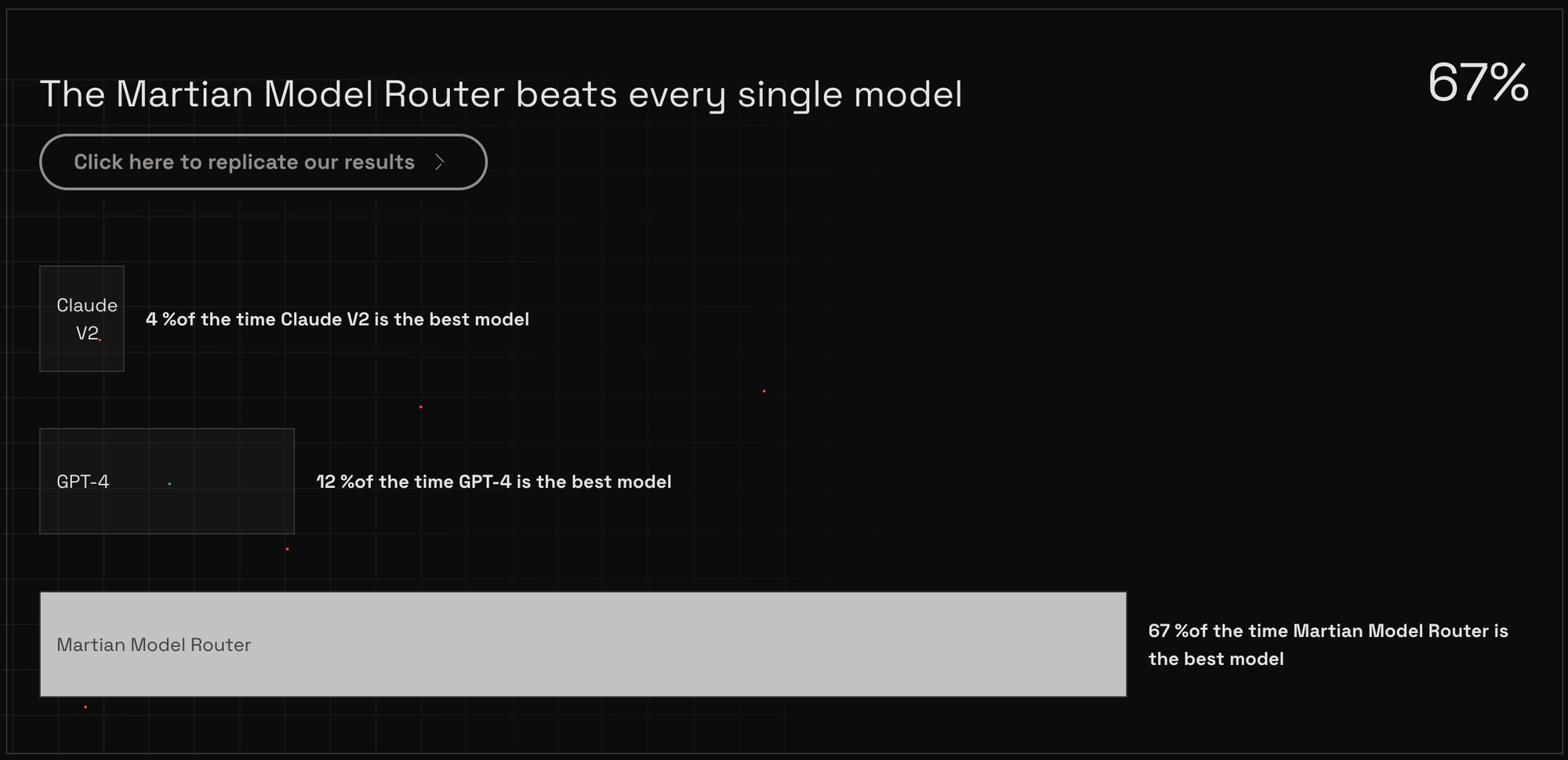
San Francisco-based startup Martian emerged from stealth mode on Wednesday armed with $9 million in seed funding and a new technology designed to help companies optimize and future-proof their AI systems.
The seed round was led by NEA and included investments from Prosus Ventures, Carya Venture Partners, and General Catalyst.
Martian aims to make AI more effective and affordable for enterprises through its patent-pending Model Router technology. This orchestration layer dynamically routes queries to the most effective AI model in real-time based on the strengths and weaknesses of each available large language model.
By combining specialized models, Model Router can outperform individual systems like GPT-4 while reducing compute costs, according to the company. Martian says Model Router achieved higher scores than GPT-4 on OpenAI's model evaluation benchmarks by optimizing across multiple models.

The technology is built on Martian's Model Mapping technique, which converts opaque neural networks into more interpretable architectures. This allows for new tools to be developed based on understanding how different models succeed or fail at various tasks.
"We make every LLM more useful by giving companies a way of benefiting from all LLMs," said co-founder Etan Ginsberg in a statement. "In our tests, we have been able to outperform GPT-4 on OpenAI's own model evaluation suite, openai/evals, by routing between several different models."
Martian was founded by researchers Shriyash Upadhyay and Etan Ginsberg, who have been studying interpretability of large language models since 2016. Their goal is to advance the fundamental understanding of how AI models work to enable new applications.
"Shriyash and Etan are among the best founders we've met globally in AI. They are offering a scalable solution to this question," said Javier Valverde of Prosus Ventures about the challenges of selecting the right models.
With new AI models introduced almost weekly, keeping pace can be difficult for enterprises. By indexing the latest models and automatically optimizing performance, Martian aims to future-proof AI infrastructure without ongoing manual tuning.
The funding will support bringing the Model Router API to market. With businesses racing to adopt AI, platforms that streamline model testing, selection, and governance will be key. Martian aims to fulfill that need by making AI more efficient and interpretable.

